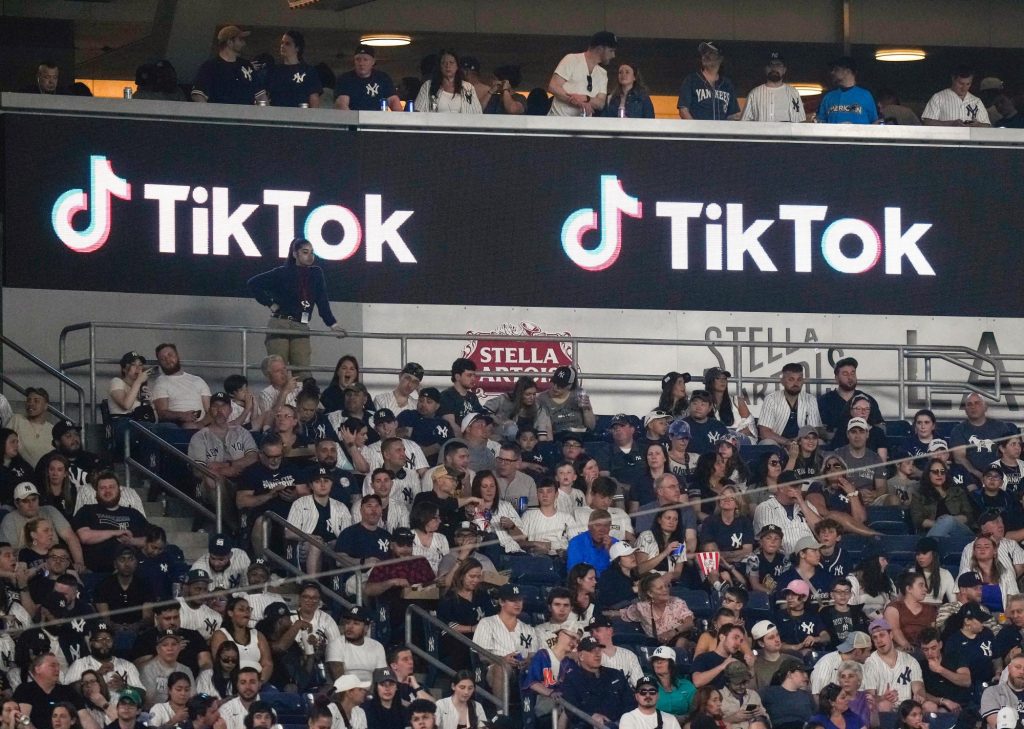By AAMER MADHANI (Associated Press)
WASHINGTON (AP) — President Joe Biden has given his support to a law that could result in the popular video-sharing app TikTok getting banned in the United States. This move comes as there is increasing worry in Washington about preventing American data from getting into China's hands.
The law, which passed through the U.S. House Energy and Commerce Committee with unanimous support on Thursday, urges China’s ByteDance to sell its ownership of TikTok, or face a U.S. ban. Republican House Speaker Mike Johnson also backs the bill and has indicated that it will soon come up for a full vote in the House.
Biden said, “If they pass it, I’ll sign it,” when asked by reporters about the law.
The White House had helped in creating the bill, but White House press secretary Karine Jean-Pierre said earlier in the week that the TikTok law “still needs some work” before Biden would support it.
Former President Donald Trump, who is likely the Republican nominee, opposed a ban in a post on Truth Social on Thursday, saying it would benefit the rival social media platform Facebook. Trump's opposition to the law comes after he issued – and then withdrew – an executive action late in his presidency to ban TikTok and another popular app, WeChat.
Trump's opposition puts him on the opposite side of the argument from influential Republicans, including Johnson and Republican House Majority Leader Steve Scalise, who have called the law a “critical national security bill.”
Both the FBI and the Federal Communications Commission have cautioned that TikTok owner ByteDance could share user data — such as browsing history, location, and biometric identifiers — with China’s authoritarian government. TikTok has stated that it has never done this and wouldn’t do so if requested. The U.S. government has not provided evidence of this happening.
In another move, Biden recently signed an executive order allowing the Department of Justice and other federal agencies to take steps to prevent the large-scale transfer of Americans’ personal data to what the White House calls “countries of concern,” which includes China, Russia, North Korea, Iran, Cuba, and Venezuela.
Biden, in 2022, prohibited the federal government’s nearly 4 million employees from using TikTok on devices owned by its agencies, with some exceptions for law enforcement, national security, and security research purposes.
Even though his administration has expressed worries about national security related to TikTok, Biden's reelection campaign recently joined the platform.
If the law is put into action, it would effectively stop TikTok and other ByteDance apps from being available in Apple or Google app stores or on web hosting services in the U.S.
The law takes a two-pronged approach. Firstly, it requires ByteDance Ltd., which is based in Beijing, to sell TikTok and other apps it controls within 180 days of the law being enacted, or those apps will be banned in the United States. Secondly, it establishes a limited process to allow the executive branch to stop access to an app owned by a foreign enemy if it poses a threat to national security.
The company has also committed to segregating U.S. user data from its parent company using a separate organization operated independently from ByteDance and supervised by external observers.
A survey released last month by The Associated Press and NORC Center for Public Affairs Research revealed that Americans hold conflicting views on the matter of prohibiting the app. Thirty-one percent of U.S. adults indicated they would support a nationwide ban on TikTok use, while 35% stated they would oppose such action. An additional 31% expressed neither support nor opposition to a ban on the social media platform.
The AP-NORC poll indicates that TikTok users — roughly 170 million in the U.S., with the majority being younger — are less likely to be concerned about the app sharing American users’ data, reflecting a previously observed generational divide. Around a quarter of daily users claim they are “extremely or very concerned” about the concept of the Chinese government obtaining the personal information of users, in comparison to about half of U.S. adults in general.
—
AP reporters Josh Boak, Kevin Freking, and Haleluya Hadero contributed to the reporting.









